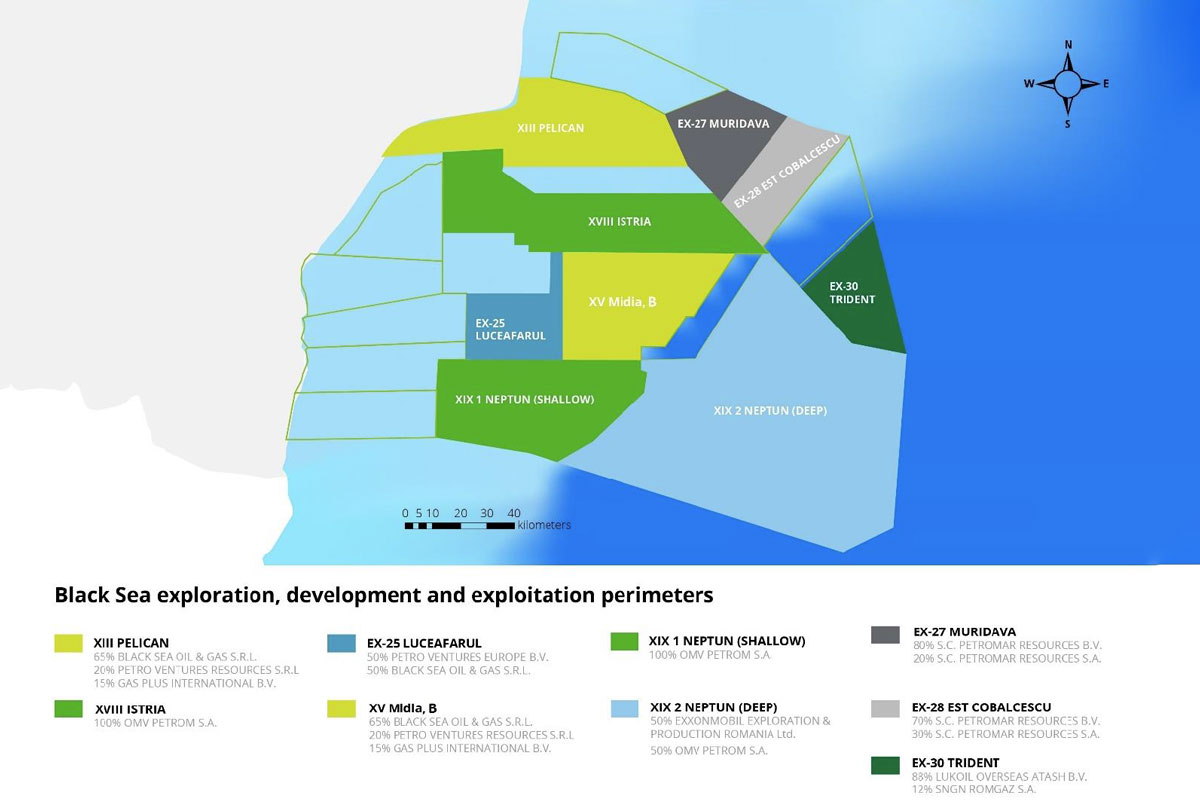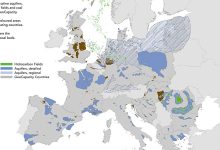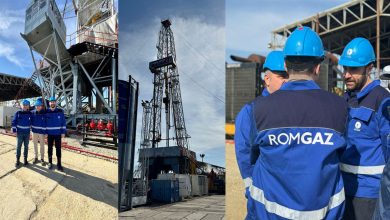Investments in the Romanian offshore oil and gas sector to bring revenues of over USD 26 Bn
According to the recently released report by Deloitte Central Europe, investments in the Black Sea oil and gas sector will generate revenues of over 26 billion USD to the state budget by 2040, representing an additional 40 billion USD to the country’s GDP. Moreover, the impact on the labour market translates into creating and annually maintaining an average of over 30,000 jobs.
The study, entitled ‘The contribution of Black Sea oil and gas projects to the development of the Romanian economy’, was performed at the request of the Romanian Black Sea Titleholders Association (RBSTA) and covers a period of 40 years, starting with 2000. The data used for the analysis was collected from publicly available sources (European Commission, ENTSO-G, ANRM, ANRE, etc.) and Deloitte’s own data and panel of experts.
The forecast is based on Deloitte Central Europe assumptions regarding the evolution of the Romanian economy, in general, and of the offshore industry, in particular.
The report also presents the strategic value of the Black Sea projects; these will enhance Romania’s position in ensuring the regional energy security, after firstly securing the domestic natural gas consumption (35% of the production from the analysed period could be exported, while the difference would cover the decline in the onshore production, in the context of increasing domestic consumption).
The impact of the offshore production on the Romanian economy was assessed using the Input-Output model conceived by US Nobel Prize winner Wassily Leontief.
“This new Deloitte impact report offers a radiography of the economic activities at the Black Sea, which we hope to contribute to the understanding of the importance of developing such investments,” said Dinu Bumbacea, Partner-in-Charge Deloitte Consulting.
The main goal of this independent study was to calculate a possible impact of the offshore oil & gas activities on the Romanian economy using an international methodology to asses it. The study estimates the national economic direct, indirect and induced effects that can be expected from large scale development of the Black Sea upstream activity. The analysis calculates the economic impact and output associated with the production phase, but also the economic effects of the exploration and development phases, thus leading to an overall cyclical pattern. Since exploration and development entail a great deal of economic activity and infrastructure expansion, their contribution to increase economic growth and provide jobs should be accounted for in addition to the long term actual production that adds significant public revenues for years to come.
Thus, over 2018–2040, the Black Sea developments are estimated to contribute approximately 71.3 billion USD to the Romanian national output and over 700,000 jobs man-years, many in high-paying professional career fields. This economic growth will have also generated around 26 billion USD in total tax revenues, out of which over 5.5 billion USD royalties.
Given the essential usage of gas in many added-value industries (such as chemical and petrochemical), the spillover effect of the offshore developments could bring approx. 9 billion USD investments in midstream, downstream and other industries, which will add another 99 billion USD to the national output and more than 18 billion USD to state revenues between 2020 and 2040, not to mention cca. 42,000 jobs created and maintained throughout the period. Those revenues could potentially be employed by the government to support the national health, social and or educational system and eventually finance infrastructure projects that will contribute substantially to Romania’s overall development. In addition, the availability of increased gas resources would trigger certain competitive advantages and spillover effects in certain midstream and downstream sectors, such as gas transmission infrastructure, chemicals and petrochemicals, as well as gas-to-power.
To sum up, investment and development of large-scale projects in the Black Sea will lead to sustainable economic growth, with subsequent direct, indirect and induced effects on jobs, taxes and national output, thus significantly contributing to the economic welfare of the country, but also to its energy security and transition towards a low-carbon economy. Moreover, jobs in the offshore upstream sector are highly paid and generate significant added value, while large scale development of offshore projects will drive know-how and technology transfer to Romania, thus stimulating the development of a whole eco-system around the offshore industry, which in turn will increase national overall competitiveness and long term development prospects.
The Deloitte team involved in the project who was selected based on a competitive process, included Romanian and Polish experts with a vast experience in using this model, and was coordinated by Dinu Bumbacea and Irena Pichola – Leader of Deloitte Central Europe Sustainability Practice. The methodology used represents a well-known approach that assesses the impact of a certain industry on the economic environment, of providers and sub-contractors from various sectors of the economy as well as the impetus generated by the remuneration of employees, which contribute to the economic growth.







